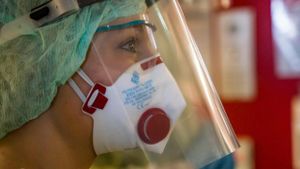Robert F. Kennedy Jr.'s nomination as the nation’s health secretary is under intense scrutiny
The Senate confirmation hearings for Robert F. Kennedy Jr. as the next Secretary of Health and Human Services have revealed deep divisions among lawmakers as they weigh his controversial stance on vaccinations, especially during the COVID-19 pandemic. Kennedy, whose views have often raised eyebrows, faced tough questions over his capability to lead the vast agency charged with overseeing health policies affecting millions of Americans.
With his nomination hanging on the brink, Kennedy’s history of skepticism about vaccines attracted severe pushback from both Democratic senators and at least one key Republican during the hearings. The aim of the hearings was to determine whether Kennedy is fit to manage the Department of Health and Human Services (HHS), which oversees about 80,000 employees and has a staggering annual budget of approximately $1.8 trillion.
Throughout the hearings, Kennedy insisted, “I’m pro-safety and pro-science,” distancing himself from critics who label him as merely “anti-vaccine.” This steadfast assertion, some senators noted, did little to quell concerns, especially after Kennedy’s warnings about what he saw as dangerous public health policies. Notably, Louisiana Republican Senator Bill Cassidy stated, “If there’s any false note, any undermining of a mama’s trust in vaccines, another person will die from a vaccine-preventable disease.” Kennedy’s refusal to definitively state whether vaccines contributed to autism raised alarm bells among lawmakers and the medical community.
Senator Cassidy, who has actively championed vaccination initiatives, repeatedly pressed Kennedy to clarify his position on vaccines, particularly his previous claims linking them to autism. “If you show me data, I will be the first person to assure the American people they should take these vaccines,” Kennedy responded, yet refused to denounce his earlier assertions, even when presented with overwhelming scientific evidence demonstrating the lack of any such link.
Among those questioning Kennedy was independent Senator Bernie Sanders, who confronted him on his failure to engage with the available studies. “That is very troubling because the studies are there,” Sanders argued. His concerns echoed sentiments expressed by other senators who emphasized the consequences of not adhering to established scientific findings.
Senator Elizabeth Warren joined the chorus, challenging Kennedy to commit to avoiding any relationships with pharmaceutical companies or drug manufacturers. While Kennedy agreed, he noted the complexity of his financial entanglements, raising eyebrows about potential conflicts of interest as he seeks to lead the agency. Warren pointed out the stark difference between her positions and Kennedy’s, having raised millions from health sectors during her own presidential campaign.
The hearings took on emotional weight when Senator Maggie Hassan discussed her personal experience with her son’s cerebral palsy, linking it to past vaccine concerns. “A day does not go by when I don't think about what did I do when I was pregnant with him,” she shared, pushing back against Kennedy’s assertions about vaccine safety by highlighting the harm generated by misinformation.
Kennedy’s approach toward abortion policies also stirred debate. Once known for his pro-choice stance, he tempered his views during the hearings, aligning more closely with previous Trump administration policies, stating “every abortion is a tragedy.” His uncertainty about the abortion pill mifepristone’s future regulations raised even more eyebrows. Despite pressure from senators to clarify his stance, Kennedy maintained he would implement the president's policies, leading to frustration among some Democratic senators.
On the topic of Medicare and Medicaid, Kennedy’s knowledge gaps were evident. He mistakenly confused key components of both programs, prompting Senator Ron Wyden to question his preparedness for such high-ranking office. “He just didn’t understand the architecture of the programs he would run,” Wyden said, highlighting concerns about Kennedy’s capability to effectively administer the vast healthcare programs.
Another contentious moment arose when Kennedy expressed his view on fluoride, claiming it poses health hazards. His comments prompted skepticism as experts point out the long-standing benefits of fluoride including its role in reducing childhood tooth decay.
Kennedy's repeated insistence on questioning the establishments of health narratives perplexed many observers, potentially jeopardizing not just his nomination but also future policies he could promote if confirmed as secretary of HHS. Senators from both sides reflected upon the challenge of maintaining public trust when misinformation seeps through discussions about well-established scientific consensus.
With the Senate Finance Committee’s role pivotal, Kennedy has limited room for error, as he can only afford to lose three Republican votes if all Democrats are opposed. Political maneuvers continue behind closed doors as some Republican senators express their doubts, showcasing the tenuous balance within the party’s support and the looming pressure from Trump’s campaign following the confirmation progress.
With widespread opposition expected on both sides, the upcoming decisions by senators may well dictate both the fate of Kennedy’s nomination and the direction of public health under one of its most controversial figures.



